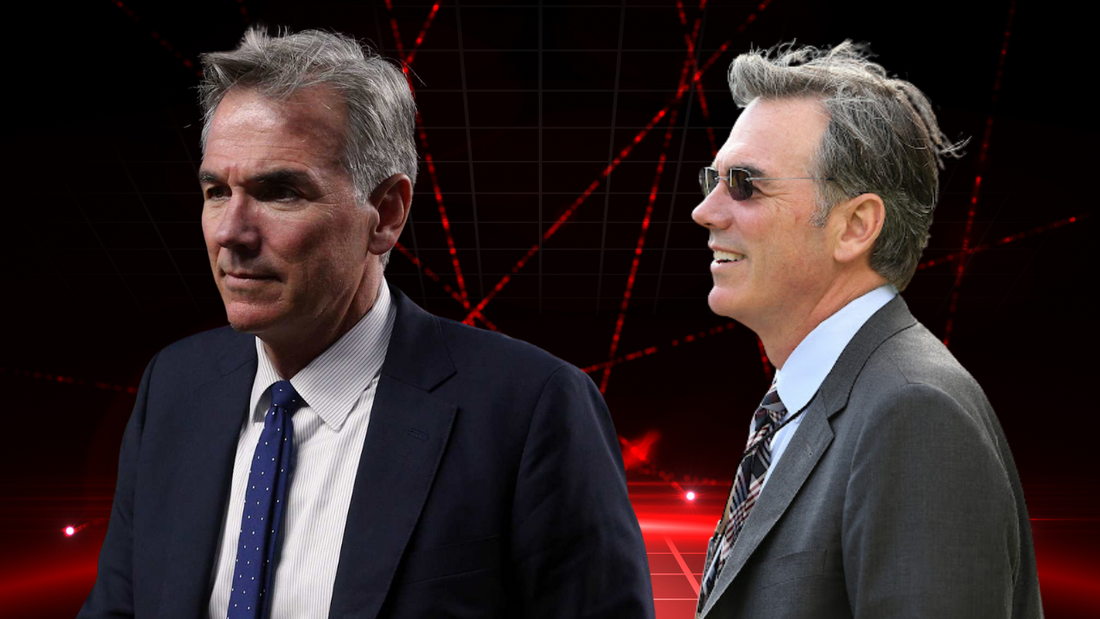
How much did Red Sox offer Billy Beane?
By Oliver Wiener December 11, 2023 04:54
Billy Beane, the renowned baseball executive and subject of the book and movie "Moneyball," is widely recognized for his analytical approach to player evaluation and team building. Beane's innovative methods drew attention from various Major League Baseball (MLB) teams, including the Boston Red Sox. In this article, we will explore the Red Sox's pursuit of Billy Beane and examine the details of the offer they made to him.
Billy Beane's Impact on Baseball
Before delving into the specifics of the Red Sox's offer, it is essential to understand Billy Beane's significance in the baseball world. Beane's approach, commonly known as sabermetrics, revolutionized how teams evaluate players and make decisions. By emphasizing statistical analysis over traditional scouting methods, Beane was able to assemble competitive teams with limited financial resources.
Beane's success with the Oakland Athletics caught the attention of other MLB teams, including the Boston Red Sox. They recognized his unique ability to identify undervalued players and build competitive teams on a limited budget.
The Pursuit of Billy Beane
In the early 2000s, the Boston Red Sox were seeking a new general manager. The team's ownership group, led by John Henry, was impressed by Beane's accomplishments with the Athletics and believed his analytical approach could benefit the Red Sox.
Henry and his associates approached Beane and expressed their interest in hiring him as the team's general manager. Recognizing the potential of working for a high-profile franchise like the Red Sox, Beane was intrigued by the offer.
The Red Sox's Offer
While the exact details of the Red Sox's offer to Billy Beane have not been publicly disclosed, reports suggest that it was an enticing proposal. It is believed that the Red Sox offered Beane a substantial financial package, including a lucrative salary and significant control over baseball operations.
Additionally, the Red Sox were willing to provide Beane with the necessary resources to implement his analytical methods and build a team according to his vision. This offer was undoubtedly tempting for Beane, considering the opportunities it presented and the potential impact he could have on one of the most historic franchises in baseball.
Beane's Decision to Stay with the Athletics
Despite the appealing offer from the Red Sox, Billy Beane ultimately decided to remain with the Oakland Athletics. This decision surprised many in the baseball world, as the Red Sox were seen as a more prominent and financially stable organization.
Beane's loyalty to the Athletics played a significant role in his decision. Having spent his entire career with the A's, Beane felt a deep connection to the franchise and its fans. He also valued the autonomy he had in Oakland and the freedom to implement his analytical approach without interference.
Impact on the Red Sox
Although the Red Sox were unsuccessful in their pursuit of Billy Beane, they did not allow this setback to hinder their progress. Instead, they shifted their focus to other candidates and eventually hired Theo Epstein as their general manager.
Epstein, like Beane, was known for his analytical approach to team building. Under Epstein's leadership, the Red Sox experienced tremendous success, winning two World Series championships in 2004 and 2007. This success solidified the Red Sox as one of the premier teams in MLB and demonstrated their ability to thrive without Beane at the helm.
The pursuit of Billy Beane by the Boston Red Sox was a significant event in baseball history. It showcased the impact of Beane's analytical approach and the recognition he received from other teams. Although the Red Sox's offer to Beane was enticing, his decision to stay with the Oakland Athletics highlighted his loyalty and dedication to the franchise he had built.
While the Red Sox were unsuccessful in their pursuit of Beane, they were able to pivot and find success under the leadership of Theo Epstein. Ultimately, this pursuit and subsequent hire demonstrated the Red Sox's commitment to innovation and their ability to adapt to changing circumstances.


































































